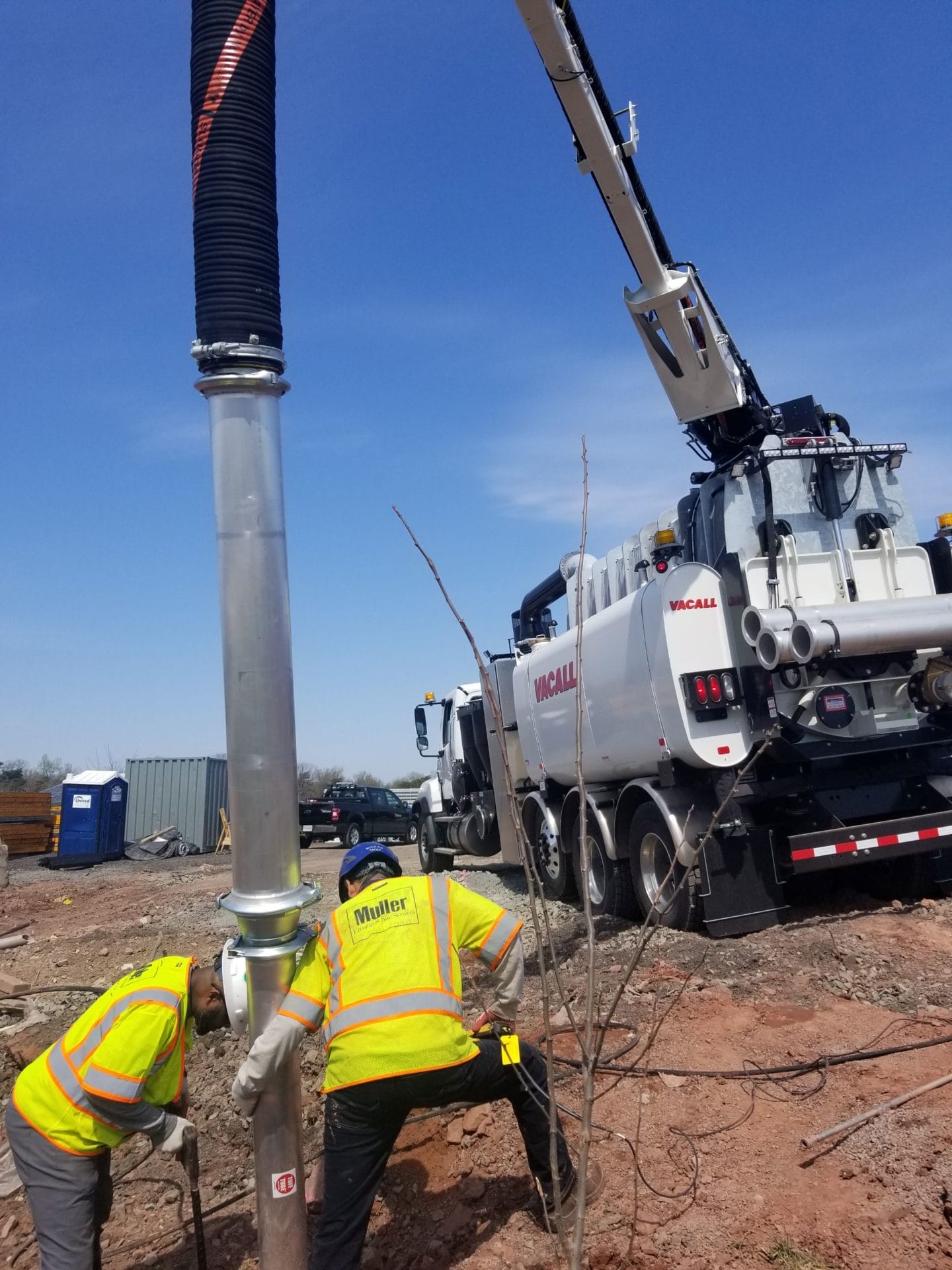When help is needed to clean an area of ground and there are complicated factors at play such as cables or stones, the use of vacuum excavation can make the process simpler, less time-consuming, and less hazardous.
The use of vacuum excavation prevents items in the soil from being damaged while still ensuring it is kept clear. But what exactly is vacuum excavation, what does it actually do, and how does it work?
How Vacuum Excavation Works
Vacuum excavation uses high-pressure water in conjunction with suction from an air vacuum that is created in a flexible hose. The process is a straightforward one that is carried out by equipment that is mounted on any truck able to carry suction equipment and water with a variety of capacities.
The Process
The process of vacuum excavation sees a high-pressure water lance being directed to cut into clay, compound surfaces, mud, rocks, sand, or soil, resulting in the formation of a slurry. Flexible hosing can then be positioned around 150-200 centimeters above the earth in order to suck up the slurry. The slurry is then transported by the vacuum through the hose to the truck’s debris tank before the air is micro-filtered and finally released.
A fan system that is capable of moving enormous amounts of air is usually responsible for the creation of the vacuum, which the truck engine powers. The suction that is created is sufficient to pull both the soil slurry and the water through the hose into the truck’s holding tank.
The holding capacity of the tank may vary according to the individual truck but usually ranges from between 3000 to 6000 liters. The tank is always sealed and of sufficient strength to avoid any accidental spillages. Trucks carry spill kits to efficiently and promptly contain any spillages that may still occur, minimizing damage to the local environment.
The Advantages of Vacuum Excavation
There are a number of advantages to using vacuum excavation rather than more traditional excavation methods. It is cheaper, faster, less invasive, safer and more precise, and environmentally friendly in comparison to methods such as backhoe excavation or manual digging.
Vacuum excavation also causes less damage to infrastructure including electricity lines, gas pipes, telecommunications cabling, and underground water pipes due to the technique being able to detect underground utilities without harming them. This results in a lowering of both insurance premiums and remediation expenses. There is also far less disturbance to surrounding soil and less requirement for backfilling when vacuum excavation is used. The soil is left firmly stable and compacted, resulting in a lowering of labor costs.
The technique has been proven to be more accurate and safer than traditional excavation methods, which lowers the rate of worker injury and increases the precision of the construction process. Vacuum excavation also means that the equipment involved can be situated farther from the actual point of excavation, which often lacks space. This helps cut down on congestion by reducing vehicle traffic.
This technique is able to cope with excavating beneath an existing structure, digging in a confined space, removal of debris, tree roots, toxic waste, excavating in cold weather, slot trenching, potholing, and remote digging. In addition, the process has scheduling advantages given that excavation work is able to proceed even during wet weather. Lastly, there is less air pollution with vacuum excavation as dust and soil particles do not become suspended within the atmosphere.
Taking Control of Excavations
Due to its advantages, vacuum excavation is now chosen by so many construction sites because of the control and low-impact effect they have on the ground. Since it is non-destructive, it can be used in areas where there are gas or water pipes, TV, or electrical cables and avoid harming the ground in areas where there are environmental concerns.
Hire the Right Team
Vacuum excavation is now used in a wide array of different applications including the rehabilitation of gas, sewer, and water pipes and the installation of poles and signs.
Muller, Inc. has plenty of experience doing vacuum excavation. We’ve done a large number of projects throughout Northern Virginia, Maryland, and Washington, D.C. Our vacuum machines can do any job safely and quickly including digging trenches to begin building work or clearing out ground surrounding cables or pipes. Vacuum excavation comes with so many advantages that are ideal for most projects so contact us today via our website or call us at 703-560-4040.

